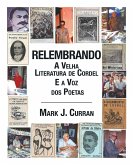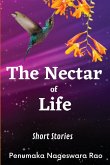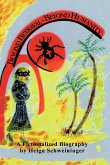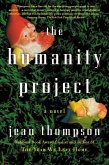All cultures evolved with storytellers, poets, singers, or narrators preserving their traditions and history by these varying forms. Colonial Brazil developed and nurtured this tradition to what they presently call "literatura de cordel", a short narrative / poem or song printed on a pamphlet and sold on street corners. This book is a collection based on those traditions varying from comedy to tragedy, morals to politics, from hopelessness to irony all bound with the common thread of humanity. When successful, these stories provoke thought usually challenging present day opinions and accepted norms within our societies leaving you with questions rather than answers. The intent of this collection is to look within ourselves and maybe learn that nothing is constant but a string of coincidences and see how little we truly know of ourselves (ego / super-ego) and our everyday actions / reactions to life. Maybe we can get closer to the absurd irrelevant answers sought like the purpose or meaning of life.
Hinweis: Dieser Artikel kann nur an eine deutsche Lieferadresse ausgeliefert werden.
Hinweis: Dieser Artikel kann nur an eine deutsche Lieferadresse ausgeliefert werden.








